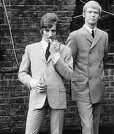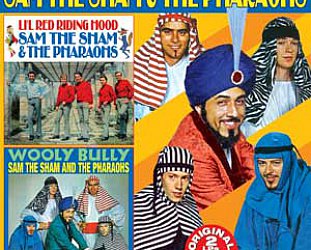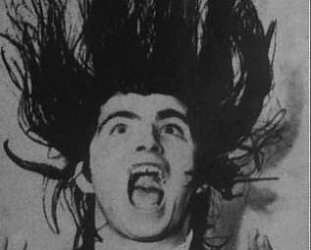Graham Reid | | 1 min read

Serious rock writers -- or more correctly, those who want to be considered serious -- will always prefer tortured artists over those who sailed along and were seen to be be enjoying themselves. Which is why Rod Stewart's The Autobiography was either dismissed, overlooked or snidely condemned by most . . . and of course unfavourably compared with Pete Townshend's Who I Am, which is a spurious comparison.
Townshend struggled with his role, Stewart enjoyed the ride.
As Stewart says in his book about "being a rock star" in the Eighties, "I never thought in this period that the 'being a rock star' aspect of being a rock star was beside the point or even something I needed to apologise for. On the contrary, it seemed to me a) where an awful lot of the fun was, and b) exactly what one had signed up for in the first place. That was the deal, surely. If I hadn't considered the drinking/shagging/carrying-on to be at least a part of the terms of my employment -- and if I hadn't done my best to hold my end up as nobly as possible in those areas -- I would have felt I was letting down the union".
Yep, in my reckoning the world needs more like Rod, but has exactly the right number of Thom Yorkes.
Okay, Rod doesn't reveal many of the inner agonies he might have suffered (he suggests there were very few anyway), but a fair reading of his reminiscences finds him honest about his shortcomings, acknowledging how shamefully he sometimes treated some women/wives, candid about his affections for model railway building, cars, football and family, and about how terrible some of his songs were.
He defends again -- as if he really needed to -- Do Ya Think I'm Sexy? which he notes once again was a narrative (like The Killing of Georgie, see below) and not a question he was asking but one which the characters were thinking, and which veered towards critically disapproved-of disco (like the Stones' Miss You and Kiss' I Was Made For Living You).
But he doesn't defend his first recorded outing, this b-side to Long John Baldry's You'll Be Mine single.
We put Rod's name up front here although he was just an uncredited member of Baldry's Hoochie Coochie Men at the time because, as he admits in The Autobiography, he tried to claim the song.
"It has all the classic hallmarks of a novice in the studio -- bursting to impress and over-singing like a maniac."
And he also adds about this Sister Rosetta Tharpe gospel shouter, "the song is a 'call and response' number but in this case the response [him] was louder than the call [Baldry]. It sounds like I'm trying to get the upper hand in a shouting match and mostly succeeding."
For more oddities, one-offs or songs with an interesting backstory use the RSS feed for daily updates, and check the massive back-catalogue at From the Vaults.





post a comment